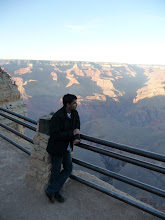One good article which came in rediff some time before...By Mahesh Balagangadhar
Kamal Haasan and Mohanlal. How would pitting one against the other sound? It would be very interesting, though daunting, to compare and contrast their styles, I thought.
I am a Keralite and have grown up in Chennai, and feel fortunate to have watched these two gifted artistes perform in the prime of their careers.
Kamal and Mohanlal (along with Om Puri and Naseeruddin Shah) might be among the most repeated names that serious movie watchers, fellow artistes and critics would pick in their individual Top 10 list of the greatest actors of all time in Indian cinema.
Of course, there are distinct differences in their style of acting. Kamal is probably the closest you could get in the search for a complete actor. His filmography and its content could serve as the best available acting encyclopaedia for any aspiring actor. Very methodical, he seems to have understood and mastered the finer points of acting. Never short on histrionics, he revels in strong, complex roles and, at times, has pushed the boundaries of these roles beyond what the writer or director probably had in mind.
Mohanlal is an actor who might be the most difficult to imitate. For most who don't understand Malayalam or the Kerala milieu, it is even more difficult to admire him. An extremely natural actor, the nuances of his acting skills are at most times so subtle as to seem very bland. Preferring the art of restraint, probably the most under appreciated quality in Indian cinema, he tries hard his to be just another character onscreen.
The sense of effortlessness he has displayed while portraying the range of memorable roles in his career has often transgressed the defined boundaries of great acting. But these aberrations have only lent these roles identities that are closer to real life, besides going beyond the realm of reel life they were originally created for.
Looking at the milestones in their careers, a discerning eye could notice a thread of difference. Here is a discussion on the movies that both bagged three National Awards each.
Kamal -- Moondram Pirai, Nayagan and Indian.
Mohanlal -- Kireedam*, Bharatham and Vaanaprastham.
(*Kireedam won Mohanlal a Special Jury National Award for Best Actor)
The above movies of Kamal were ones in which he had very strong, author-backed roles. In Moondram Pirai, a youngster's life is touched when he interacts with someone who alternates, through the movie, between normalcy and insanity. In Nayagan, he had a dream role, a fictionalised epic version of a real life underworld don. In Indian, he played a 60-plus year old idealistic ex-freedom fighter who decides to take the law in his hands to clean up society.
These were well-written, unique roles that, from their conception, needed an actor like Kamal to do justice to. He elevated these strong author-backed roles into the realm of acting utopia. There was near perfection and acting grandeur in them. In several scenes, Kamal, the actor, took over. The viewers' sense of admiration was more for the actor than for the complexity of the character being portrayed.
Mohanlal's award-winning roles were not ready recipes for instant success and acclaim. Be it the unemployed youth trying to fulfill his father's dream of becoming a policeman in Kireedam, or the younger brother in Bharatham having to deal with the death of his elder brother with a musical rivalry in the backdrop. Or the struggling Kathakali artiste in Vaanaprastham.
He raised these ordinary roles to great heights single-handedly, never succumbing to self-indulgence. He almost underplayed each of these roles. Mohanlal engrossed the viewers so deep that one could almost identify with the pain of these characters. Very few actors and leading men in Indian cinema can lay claim to possess this rare acting attribute.
Two similar, very powerful, scenes in Nayagan and Bharatham highlight their distinct approaches to acting: Kamal first looks at his son's dead body and then lets out a series of gut wrenching cries. Mohanlal identifies a badly mutilated corpse as that of his elder brother at the police station. What follows is a mute cry followed by a subdued trickle of tears and a look of utter helplessness and disbelief in his eyes.
Two very distinct ways of expressing sorrow onscreen. Yet, they arouse the same intensity. But there is a difference in the way you react to the two. When Kamal cries in Nayagan, his expressions are so powerful that you find yourself admiring his acting prowess. When Mohanlal cries in Bharatham, the poignancy he creates hits you the most, not the intensity or the subtlety of his acting. You relate to what his character might be going through.
It would be a watershed in Indian cinema if the two ever decide to come together onscreen. If that happens, I am sure I will be too besotted with them to compare the nuances of their craft. It would just be movie nirvana!
Friday, September 21, 2007
Subscribe to:
Post Comments (Atom)

2 comments:
Dude, all the comparisons somehow echos that Mohanlal is a better actor. I am a fan of neither. You have the right to tell your opinion. But the crying scene in Nayagan touched my heart, alas it didn't for u. Mohanlal in kireedom climax was equally good.
Extremely well written. Njaan kone adikkunnathu alla.
Post a Comment